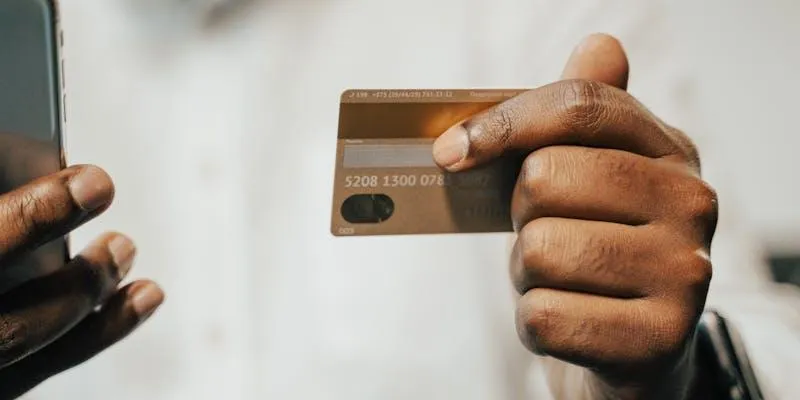Credit Card Return Check Fees: Explanation and Functionality
When payments fail due to reasons like insufficient funds, payment failure fees (PFRs) are levied. Besides the inherent cost, returned mail fees may add extra charges. You probably aim to pay your loan, credit card, utility, or insurance bill promptly. However, if your bank or credit union declines the payment, a returned payment charge may be imposed.
According to a study by the bank, the most common reasons for the returned check charge of Discover are insufficient funds in your bank account and a lack of overdraft protection. This issue might arise from entering incorrect account information or if your bank account is closed. It’s important to note that locking your debit card won’t prevent payments. Let’s delve deeper to discover returned check charges.
Understanding Returned Check Costs

If a customer writes a bad check to your business and you attempt to cash it, the receiver may incur various costs. Suppose a customer owes your company $300 for services rendered, but their bank account only has $250. This shortfall leads to penalties. Several companies, like American Express, charge $38 for returned payments, while data suggests the usual fee is closer to $12.
However, the check writer is liable for additional returned mail fees. Even if the check is cashed, the checking account could be overdrawn by $50 without overdraft protection. Overdraft protection remains a valuable backup in emergencies, despite potentially carrying an overdraft fee (which can exceed $35). Large financial institutions like Bank of America and Wells Fargo collected over $1 billion in overdraft fees in 2021. For smaller banks, these fees account for a third of non-interest income.
In the Discover returned check charge scenario, if the check writer’s account lacks overdraft protection, the $250 remains, and they incur an NSF fee (currently $34). A bad check can cost between $35 and over $70.
Fortunately, many financial institutions, heavily reliant on overdraft fees, face regulatory scrutiny for their high charges. Several large banks have waived overdraft fees, a trend likely to continue.
Typically, you don’t bear the returned check charge for Discover bank accounts as the receiver. Waiting until the sender has sufficient funds before depositing the check is advisable. Moreover, proceed if the Discover returned check charge sender notifies you they need more money.
Consequences of Having a Check Returned
Bank Penalties
Even with a low account balance, your returned check charge of Discover Bank may charge insufficient funds (NSF) fees, deducted straight from your balance. NSF fees vary among institutions, but a Bankrate analysis shows the average NSF fee is around $33. Additionally, canceling your account may hinder opening one with another bank or credit union.
Check Recipient Charges
The company or individual receiving the check might impose a returned mail fee. Depending on the state, the recipient could charge between $20 and $50 or a percentage of the check amount. The payee might also take further actions, such as discontinuing a service.
Negative Banking History
Financial institutions often report returned checks to national credit reporting bureaus, including Discover returned check charges. Alternatively, they may inform specialized reporting agencies like Early Warning Services and ChexSystems about rejected checks. These organizations specialize in information verification. A negative history with them can make obtaining a bank account more difficult.
Legal Penalties
Writing a check without sufficient funds, as in returned check charge of Discover , may lead to misdemeanor or criminal charges in various jurisdictions. The specifics, such as the check amount and whether you eventually paid, depend on the situation and local laws.
Potential Credit Hit
Credit agencies like Equifax, Experian, and TransUnion might be informed of bounced checks by financial institutions. However, this is at the payee’s discretion. For instance, if the check was for a loan payment, the lender might treat it as nonpayment and report the missed or late payment to the credit bureaus. Negative entries on your credit reports can lower your credit scores.
Avoiding a Returned Payment Fee

Here are several strategies to help you avoid a returned payment fee:
- Maintain a buffer in your checking account. Always keep some funds in reserve in your bank account. Monitor your balances and transactions to prevent unpleasant surprises. Given that expenses vary monthly, maintaining a small amount in your checking account can help avoid overdrafts and returned payments.
- Align due dates. Adjust your payment date to sync with the schedules of multiple lenders, utility companies, and insurance providers. This ensures your bank account is never overdrawn to meet obligations.
- Track your payments. While most payments are monthly, some are quarterly, semi-annually, or annually. Consider setting reminders to avoid missing any payment, regardless of frequency.
- Set up overdraft protection. If available, apply for a credit card, savings account, or line of credit with limits from your bank or credit union. Upon overdrawing, your bank swiftly transfers funds to the linked account. Some institutions also impose returned mail fees.
- Enter bank details accurately. Many financial institutions verify the bank information you provide. Confirm your bank account details’ accuracy when making payments, as this may not apply to all service providers.